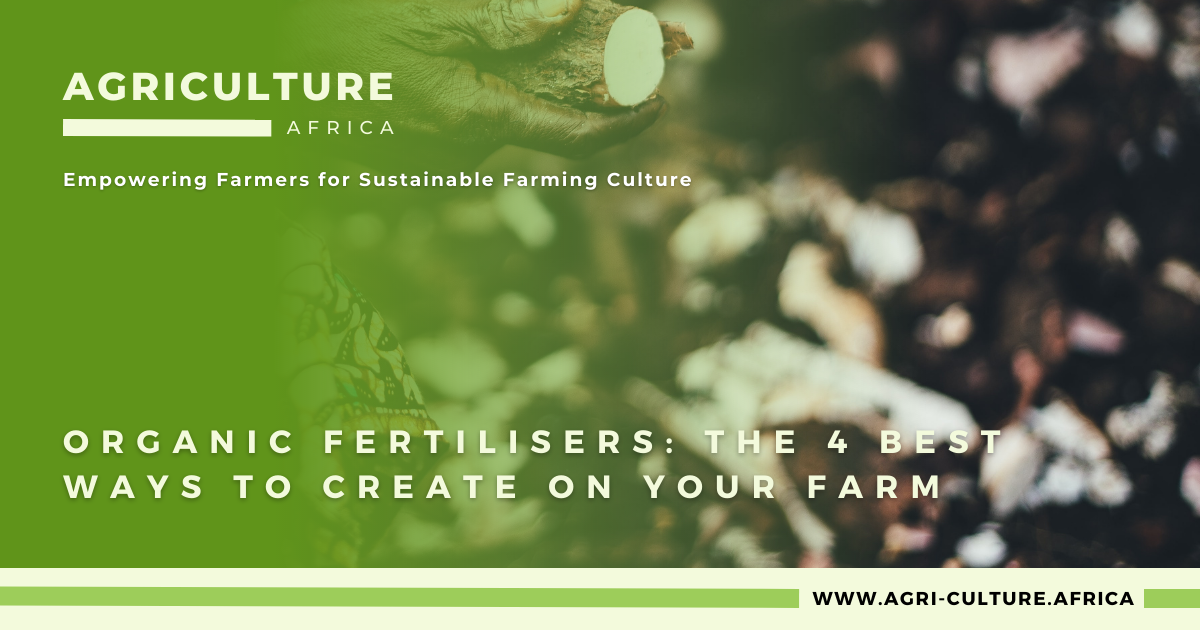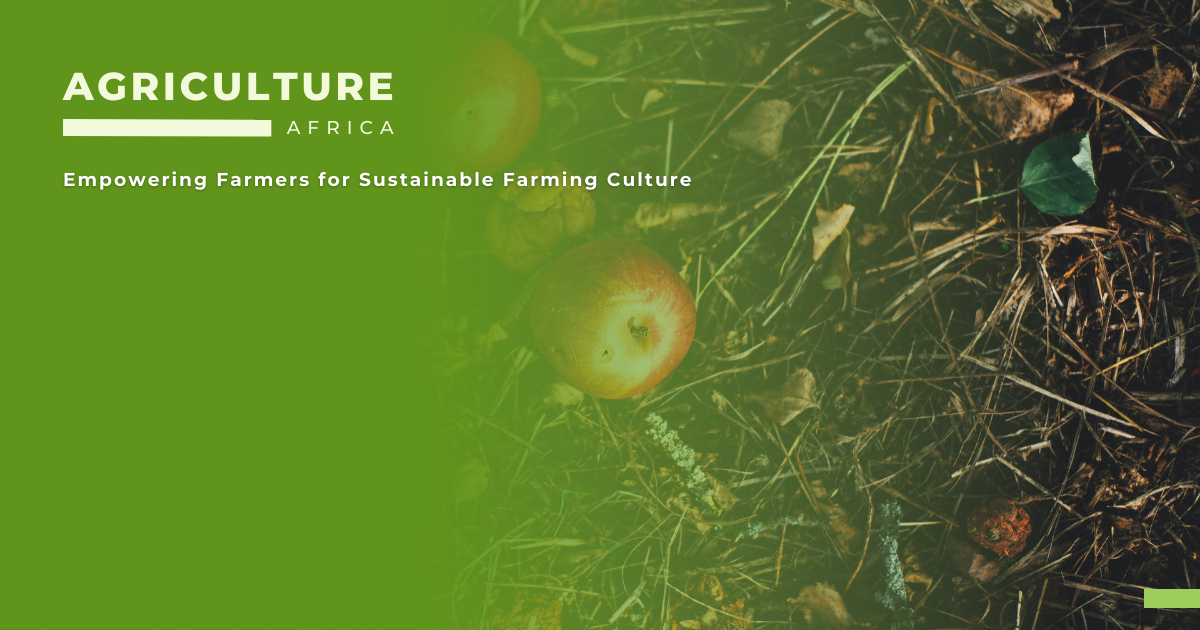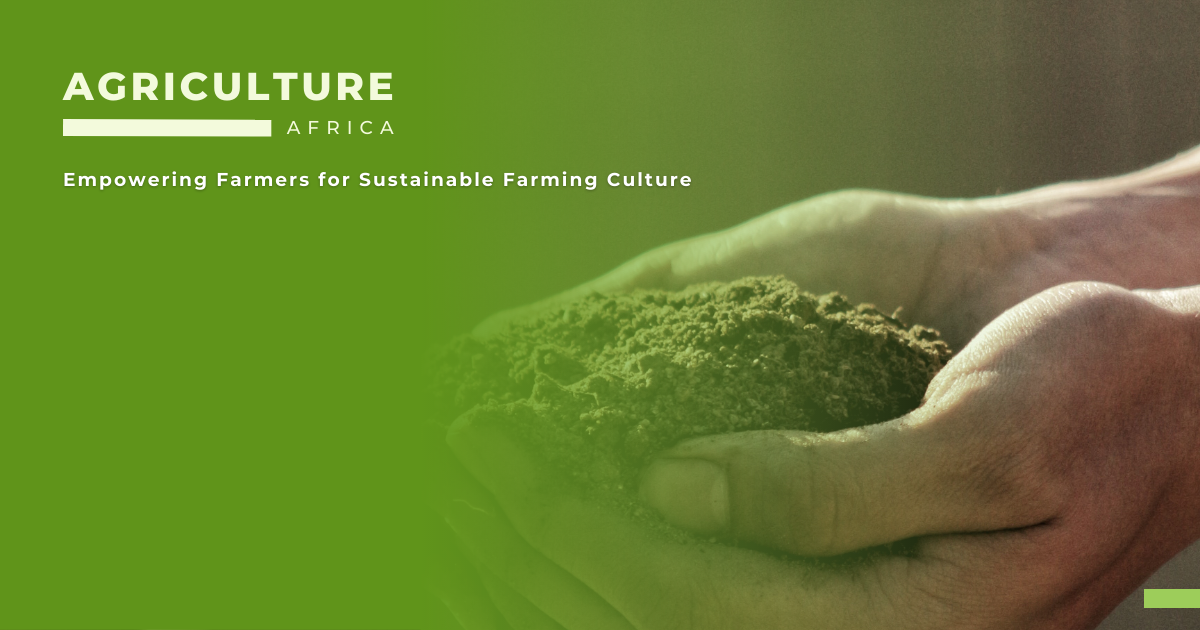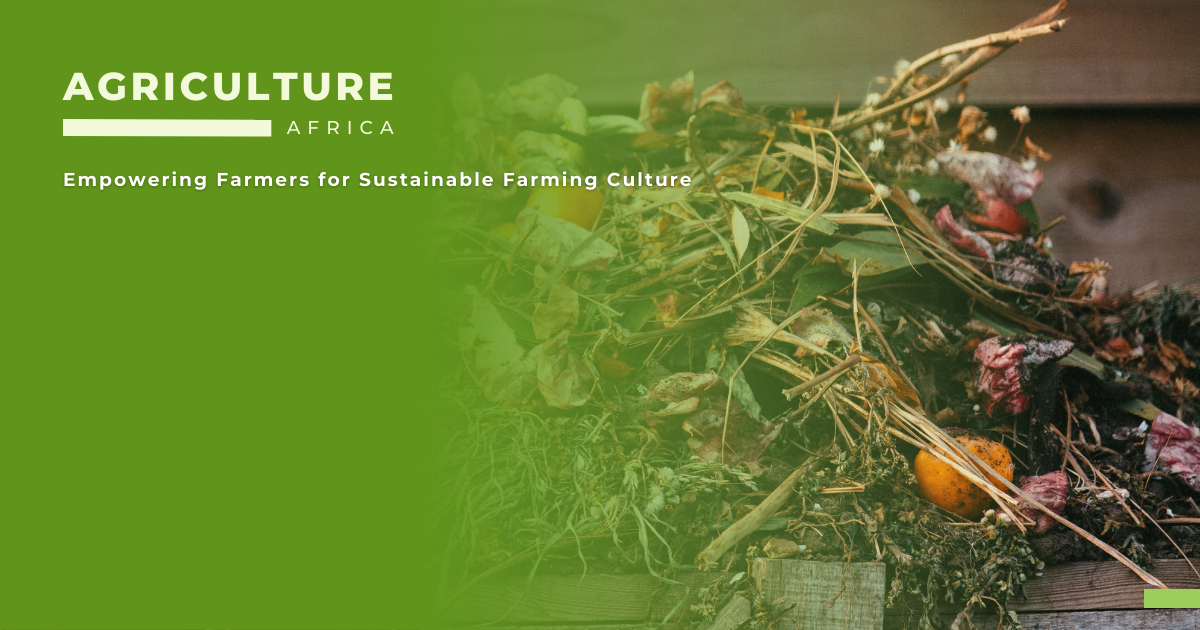
Empowering African Farmers for Sustainable Farming Culture
Learn how to make organic fertilisers from natural ingredients to help your plants grow strong and healthy!
Growing plants can be a rewarding and fulfilling experience, but keeping them healthy and pest-free can be difficult. To accomplish this, chemical fertilisers and pesticides are frequently used, but they can harm the environment and pose health risks to humans and animals. There are, thankfully, natural alternatives that are safe, effective, and simple to make at home. In this article, we will look at how to make organic fertilisers, as well as the benefits of using them and the steps involved.

Organic fertilisers have several advantages over synthetic fertilisers. Organic fertilisers improve soil structure, increase soil fertility, and improve soil moisture retention. They are also better for the environment because they don’t contain harmful chemicals that can pollute the soil and water. Organic fertilisers can also enhance the flavour and quality of fruits and vegetables. They provide essential nutrients to plants while also protecting them from pests and diseases without leaving harmful residues. Here are some advantages to using organic fertilisers:
Compost, manure, bone meal, blood meal, fish emulsion, and seaweed are all natural ingredients used to make organic fertilisers. These natural ingredients supply the nutrients that plants require to grow. Organic fertilisers release nutrients gradually over time, which benefits plants by lowering the risk of nutrient burn.

Organic fertilisers can be made at home in a variety of ways. Because each type provides different nutrients to plants, it is critical to understand what your plants require before selecting the type of fertiliser to use.
There are several ways to make organic fertilisers using natural ingredients. Here are some of the most popular methods:

Composting is the decomposition of organic matter to produce nutrient-rich soil. A compost bin, which can be purchased at a garden store or made from a plastic bin, is required to make compost. Put yard waste in the bin, such as leaves, grass clippings, and vegetable scraps. Add some soil and combine the ingredients. Keep the compost moist and turn it on a regular basis to hasten the decomposition process. After a few months, the compost will be ready to use as a soil amendment or mixed with water to make compost tea.
Manure is high in nitrogen, phosphorus, and potassium, all of which are essential nutrients for plant growth. You can use cow, horse, chicken, or rabbit manure. Because fresh manure can burn plants, it should be composted before use. Mix manure with garden waste and keep it moist to make manure compost. Turn the compost on a regular basis to hasten the decomposition process. After a few months, the manure compost will be ready to use.
Phosphorus, which is necessary for root development, is abundant in bone meal. Bake bones for an hour at 350 degrees Fahrenheit to make bone meal. Crush the bones into a fine powder and scatter it around the base of the plants. Meal made from bones
To make worm castings, first populate a worm bin with red wigglers. Add organic materials to the bin, such as food scraps and leaves, and let the worms do the rest. The worms will produce nutrient-rich worm castings in a few months, which can be harvested and used as fertiliser.
Simply combine the ingredients and apply them to the soil around the plant’s base to make organic fertilisers. Use a 1:3 ratio of organic fertiliser to soil.
Your donation fuels change! Help Agriculture Culture in Africa empower farmers with resources, training, and access to innovation. Together, we can revolutionize African agriculture.
Empowering Sustainable Growth and Innovation in African Agriculture
Sign up to our newsletter